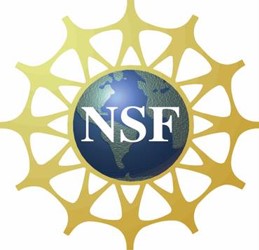About Us
At the Rutgers Impact Studies of Climate Intervention (RISCI) lab, we study the impacts of various proposed climate intervention (also called geoengineering) schemes to increase sunlight reflection to cool Earth and counteract the effects of anthropogenic global warming. We use computer models and analyses of analogs such as volcanic eruptions, and focus on stratospheric aerosol intervention (SAI). SAI would emulate large volcanic eruptions, and create a sulfuric acid cloud in the lower stratosphere to reflect sunlight. While volcanic eruptions have taught us that indeed a stratospheric cloud would cool Earth, it could also produce additional risks, such as precipitation reductions, particularly in summer monsoon regions in Asia and Africa.
The RISCI lab is led by Professor Alan Robock and Professor Lili Xia. It was founded in 2008, and has been supported by six different grants from the National Science Foundation so far. The RISCI lab studies the benefits and risks of SAI, including agricultural impacts, ecosystem impacts, air pollution impacts, governance, and ethics. So far we have produced 82 publications, which can be read at http://climate.envsci.rutgers.edu/robock/robock_geopapers.html.
In 2011 Dr. Robock, then student Ben Kravitz (now a professor at Indiana University), and colleagues founded the Geoengineering Model Intercomparison Project (GeoMIP), which has organized standard climate model experiments to examine the potential benefits and risks of climate intervention. Professor Daniele Visioni (Cornell University) now co-leads GeoMIP along with Dr. Robock. GeoMIP is an officially endorsed model intercomparison project in the Coupled Model Intercomparison Project Phase 6. So far, 19 climate modeling groups from around the world have participated in GeoMIP, and the project has produced 170 peer-reviewed and 22 technical publications. GeoMIP is the largest and most productive climate intervention climate modeling international collaboration. For more information about GeoMIP, see http://climate.envsci.rutgers.edu/GeoMIP.
In addition of continuing to support GeoMIP, we are now focused on the impacts of SAI climate intervention on agriculture, natural ecosystems, and air pollutants. RISCI does not endorse or advocate actual implementation of climate intervention. Rather, we support research to evaluate the potential benefits and risks, so that in the future society can make informed decisions about the advisability and design of potential implementation.
RISCI is funded by grants from the U.S. National Science Foundation and SilverLining.

